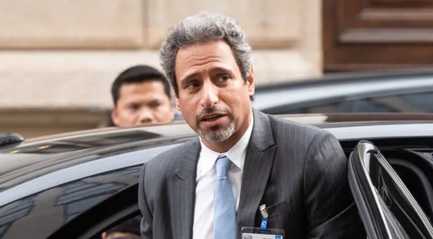
09 Nov 2022; MEMO: Oman's Energy Minister, Salim Al-Aufi said on Tuesday he saw oil prices coming down from the range of $90 a barrel after the winter season, Reuters reports.
"We don't believe that the current prices are sustainable comfortably," he told Reuters on the sidelines of the COP27 climate conference in Egypt's coastal city of Sharm El-Sheikh.
"We believe after the winter season they will go down … we think it will go to a much more comfortable position in the 70s," he said.
Aufi said Oman set the oil price for its budget at $55 a barrel to create an extra cushion for debt payments but that he did not think prices would go down that much.
"We do have a lot of debt to pay so if we budget at $55, anything above a $55 price will go towards paying the debt," he said.
Aufi also said the upcoming 4 December OPEC+ meeting in Vienna would largely be driven by the messaging out of Europe on its economic outlook.
If Europe's message was that it still expected a recession and higher interest rates, OPEC would again consider the question "do we have over-supply," he said.
Aufi said he had not seen any data yet and that OPEC+ could move either way, depending on whether the group believed the market was over-supplied.
At its 5 October meeting, the OPEC + grouping of OPEC members and allies, including Russia, agreed a 2 million barrel per day (bpd) output cut that triggered a war of words with some in the West, with the US administration calling it "short-sighted".
OPEC+ producers have rallied around top oil exporter and de facto OPEC leader, Saudi Arabia, after Washington accused it of pushing some members into the cut.
Aufi said the 5 October decision had been driven by strong indications of over-supply.
"We saw the numbers, we felt there are signs of recessions, strong messaging of recession coming from Europe, from the Far East, China of course, and there were indications that there is an over-supply to the market."
Oman's production capacity is currently at 1.2 million bpd, Aufi said.
Asked about the Western-imposed price cap on Russian oil exports due to come into effect 5 December, one day after OPEC+ is scheduled to meet, Aufi said it was unclear how it would work.
"When you put a cap and not talk about a floor then you are sending the wrong message to the market that I am allowed to cap you, but I will never give you a protection," he said.
"If the price goes down to $30, live with it, but if it goes up to this level then I intervene. That's not fair."
The unprecedented move aims to prevent Russia from profiting from a surge in prices fuelled by its 24 February invasion of Ukraine, while ensuring that most of Russian oil keeps reaching global energy markets.




